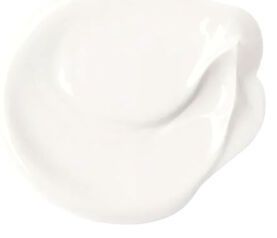CREATING ARTIFICIAL SKIES IN UNDERGROUND HABITATS ON MARS & MERCURY. This will be an interesting subject for much deliberation in the future: how to best create artificial skies in sealed habitats. Metamaterial vantablack is a surface so perfectly dark that if you stood in a room where the ceiling, walls and floor were covered with it, you would feel like you were floating in black space. Disneyland must get off its butt and create a big room like this. Now a new paint (not quite the opposite of vantablack as it claims) has been invented, which will reflect back nearly 100% of light hitting it, an interesting way to augment existing lighting in a building by painting the ceiling with the stuff.
And here is something which I told you before: if the human eye stares at a totally uniform color, with no discernable features it doesn’t know where to focus, and psychologically can see this as a kind of “sky.” Since there is nothing to focus on, the eye assumes it is the far away sky and focusses to infinity or goes into its least-energetic focusing mode, as in looking at a blank sky.
View a large computer screen with a totally uniform color, through a tube which blocks the edge of the screen from view. You already see this effect with this small experiment.
New paint reflects nearly all light hitting it, can help cool down space probes:
A team of scientists have created a white paint that’s so white, they say, that it reflects 95.5 percent of sunlight that reaches its surface.
Essentially, it’s the exact opposite of Vantablack, the substance that makes objects appear so dark, by absorbing close to 100 percent of light that hits them, that it’s as if you’re staring into a black hole.
The team is hoping their invention could allow buildings to passively reflect most sunlight, thereby “rejecting heat.” In other words, it could allow us to keep interiors nice and cool without running energy-gobbling air conditioners.
